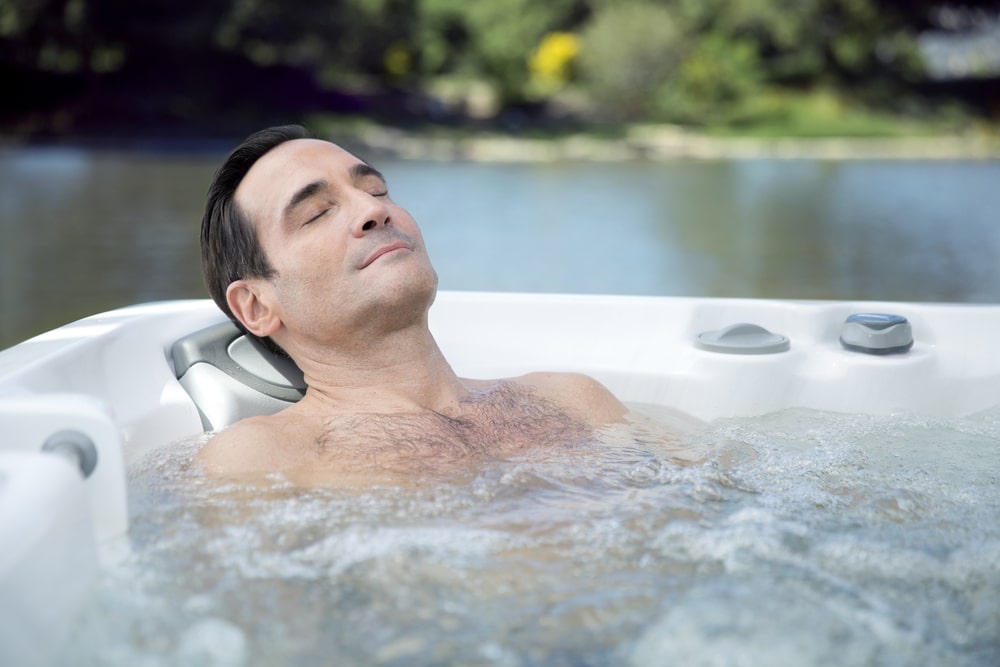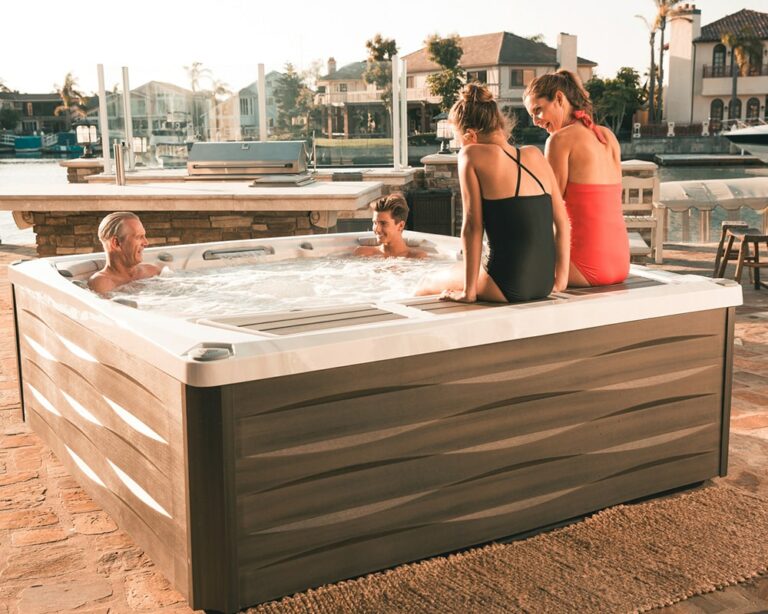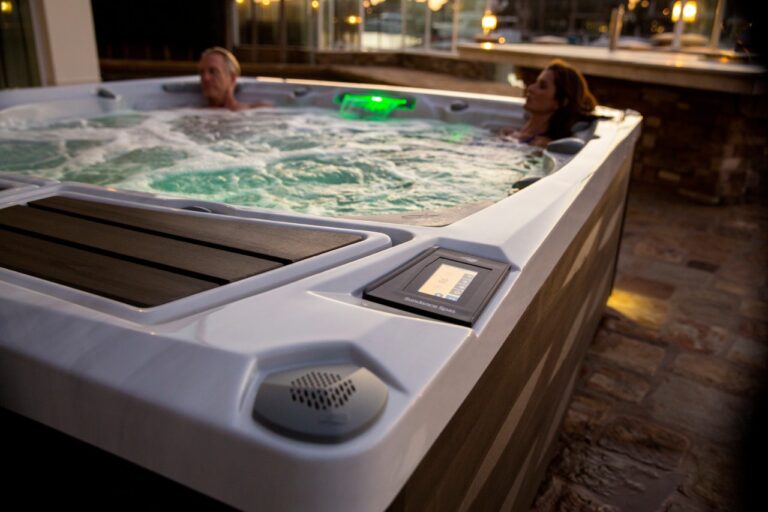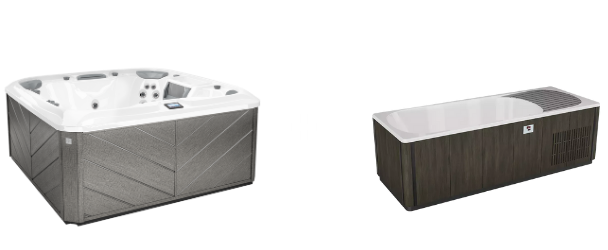Sleep is an essential aspect of our health, and getting a good night’s rest is critical to our overall well-being. However, getting quality sleep can be challenging for many people, and there are numerous factors that can impact the quality of our sleep, including stress, anxiety, and physical discomfort.
Fortunately, soaking in a hot tub provides an array of benefits, including helping you get better sleep. In this blog post, we’ll explore how hot tubs can improve your sleep and provide some tips for getting the most out of your hot tub experience.
Relaxation
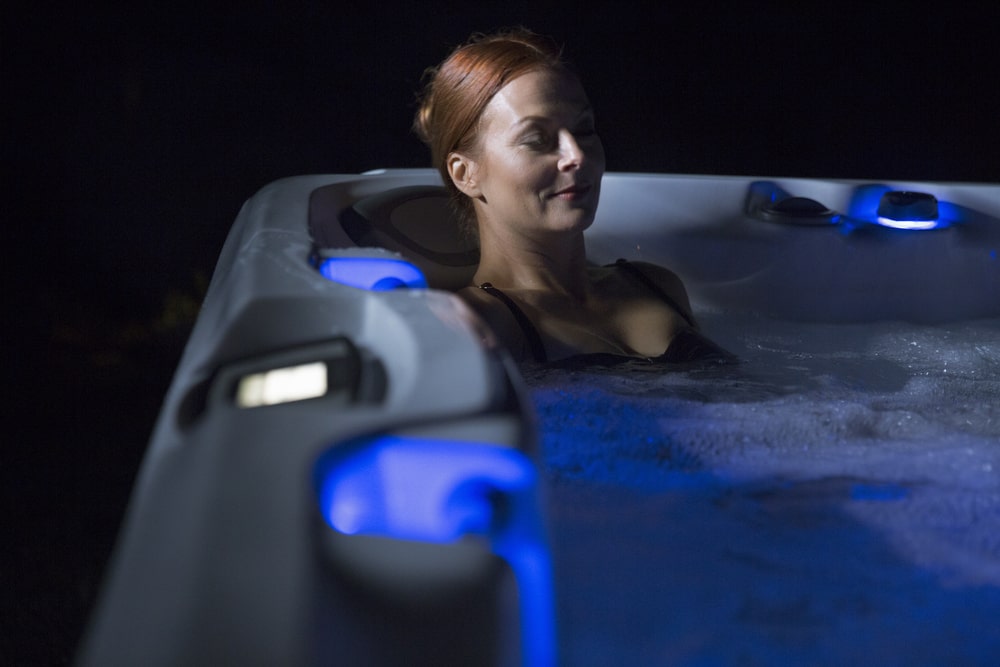
One of the primary ways that hot tubs can help improve sleep is by promoting relaxation. According to the National Sleep Foundation, relaxation is essential for getting a good night’s sleep.
Soaking in a hot tub can help reduce stress, ease tension in the muscles, and promote a sense of calm, making it easier to fall asleep and stay asleep. As your body temperature rises in the hot tub, it can help trigger a natural drop in body temperature, which signals the brain that it’s time to sleep.
Pain Management
Studies have also shown that hydrotherapy can help reduce physical discomfort, which can be a significant barrier to getting quality sleep. Soaking in a hot tub can help ease the tension in sore muscles, reduce joint pain, and promote better circulation.
The warm water helps increase blood flow to the muscles, which can help reduce inflammation and promote healing. For people who suffer from conditions like arthritis or chronic pain, a hot tub can be a valuable tool for managing their symptoms and improving their sleep.
Reduced Stress
Another way that hot tubs can help improve sleep is by reducing the symptoms of anxiety and depression. According to a study published in the Journal of Sleep Research, individuals who suffer from anxiety or depression often experience disrupted sleep patterns, including difficulty falling asleep and staying asleep.
Soaking in a hot tub can help reduce the symptoms of anxiety and depression by promoting relaxation and reducing stress. The warm water can also help increase the production of endorphins, which are natural mood-boosting chemicals in the brain.
Incorporating a Hot Tub Into Your Routine
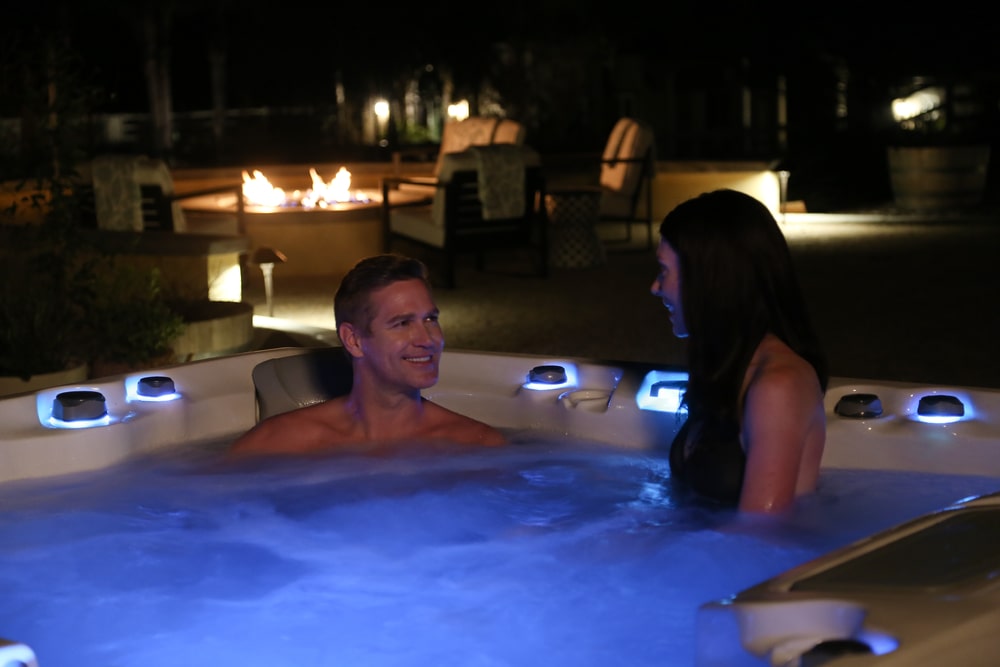
If you’re considering using a hot tub to improve your sleep, here are some tips to help you get the most out of your experience:
- Set the right temperature: The ideal temperature for a hot tub is between 100-104 degrees Fahrenheit. Anything hotter may lead to discomfort and dehydration.
- Soak for at least 20 minutes: Experts recommend soaking in a hot tub for at least 20 minutes for maximum relaxation and improving sleep quality.
- Soak 2-3 hours before bedtime: this allows your body time to cool down after your hot tub soak.
- Use aromatherapy: Adding aromatherapy to your hot tub experience can help enhance relaxation and improve sleep quality. Lavender, chamomile, and eucalyptus are all excellent options for increasing relaxation.
- Keep your hot tub clean: Keeping your hot tub clean is essential for ensuring a safe and healthy experience. Regular cleaning and maintenance can help prevent the growth of bacteria and other harmful organisms.
Hot Tubs in New England
At New England Spas, we offer a range of Sundance® Spas that are designed to help you get the best possible sleep. Our hot tubs feature advanced hydrotherapy jets, ergonomic seating, and state-of-the-art controls, allowing you to customize your hot tub experience to meet your individual needs.
We also offer a range of hot tub accessories, such as headrests and pillows, to help you maximize your relaxation and improve your sleep quality.

